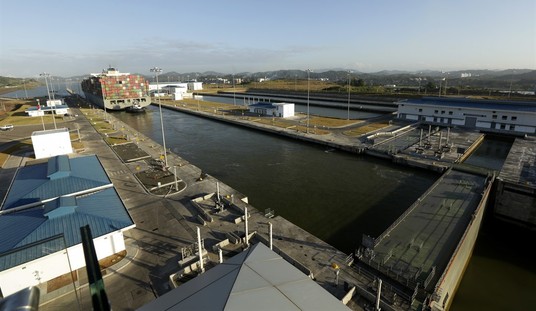The August 2012 Bureau of Labor Statistics Job Report can be found here. It describes the employment situation in the US. The report says that the computed unemployment rate is down but that far fewer people are looking for work:
The unemployment rate edged down in August to 8.1 percent … Among the major worker groups, the unemployment rates for adult men (7.6 percent), adult women (7.3 percent), teenagers (24.6 percent), whites (7.2 percent), blacks (14.1 percent), and Hispanics (10.2 percent) showed little or no change in August. The jobless rate for Asians was 5.9 percent (not seasonally adjusted), little changed from a year earlier.
In August, the number of long-term unemployed (those jobless for 27 weeks or more) was little changed at 5.0 million. These individuals accounted for 40.0 percent of the unemployed.
Both the civilian labor force (154.6 million) and the labor force participation rate (63.5 percent) declined in August.
Among the marginally attached, there were 844,000 discouraged workers in August, a decline of 133,000 from a year earlier. (These data are not seasonally adjusted.) Discouraged workers are persons not currently looking for work because they believe no jobs are available for them.
According to the report, “employment rose in food services and drinking places, in professional and technical services, and in health care.” But if things were bad in America, they were worse in Europe. The New York Times reports that unemployment in France is higher than at any point in the 21st century and the Hollande administration aims to fix it in part by raising taxes.
President François Hollande was preparing to cut €33 billion, or $42 billion, from the budget to keep the euro crisis from infecting France, the headlines read. How would the French withstand it, demanded Mr. Chaffar, a plumber whose business has slowed, when the economy was already stagnant and unemployment was at a 10-year high?…
Mr. Hollande has upset business leaders by pledging to make a series of tax increases. Political parties are bickering about whether he should even stick to a 3 percent deficit limit. And economists say they will not be surprised if the French take to the streets soon if Mr. Hollande winds up biting into the economy too deeply….
The problem is by no means as daunting as that facing the shaky coalition government in Greece, where public tensions have reignited at the prospect of further cutbacks in the teeth of a five-year recession and 23 percent unemployment.
But the challenges are nonetheless formidable for Mr. Hollande, who presides over a country where government expenditures are more than 56 percent of gross domestic product, one of the highest ratios in the euro zone.
However bad things have been things have been worse in Europe by comparison.. Here is a chart from the European Statistics bureau, Eurostat, illustrating the trends. As can be readily seen, there was sharp rise in the unemployment numbers in mid 2008 in the United States, which if measured by labor participation rates may be much higher than the nominal 8.1%.
European job statistics are quite frightening. Greece and Spain (EL and ES) have unemployment rates over 23%. France, a “prosperous” and “safe” European country, is at 10.3%.
Spain and Greece are in depths that were never plumbed even during the worst of the Great Depression in the 1930s.
What does this tell us about 2012 election? Recent European electoral history suggests that voters turn on their leaders in bad times. The Socialist Hollande and the left-wing coalition in Greece rose to power in reaction to popular misery. But it also suggests that many in electorate think no further than to register their reflexive displeasure at the current office-holders. Neither Hollande nor the Greeks are doing much to improve things. Nor by the looks of it, is the Spanish ‘conservative’ Rajoy, possibly because he’s doing exactly the same thing as the Socialist Hollande.
Spain has failed to restore investor confidence in its ability to repay its debts predominantly because the reforms pushed by the Rajoy government so far have focused mostly on revenues, namely tax increases, while the government’s bloated administration and massive subsidy culture remain in place. As such, the economy deteriorates and taxes go up, while debt continues to grow.
Spain seems stubbornly intent on restoring tax revenues that were the product of a giant real-estate bubble, and those will not return easily. Tax collections per capita increased almost 40% between 2003 and 2008 due to the housing bubble, driving a similar increase in government spending. Spain created a public sector perfectly suited for an economy that would grow 2% per year forever. It didn’t. Once the bubble burst, those revenues disappeared but the spending stayed. That funding gap, which took Spain to an 8.9% deficit in 2011 from a 2% surplus in 2007, can not be tackled through taxes, but only through cuts in spending.
Voters in Europe are flicking the light switch in the hopes that the bulb will go on, but without an apparent understanding of what the problem is. That is how electoral politics worked in the postwar period. Left-right-left-left-right-left. The switch was flicked and society staggered along. But this time the fix isn’t working. Not to all appearances, anyway.
Belmont Commenters
How to Publish on Amazon’s Kindle for $2.99
The Three Conjectures at Amazon Kindle for $1.99
Storming the Castle at Amazon Kindle for $3.99
No Way In at Amazon Kindle $8.95, print $9.99













Join the conversation as a VIP Member